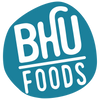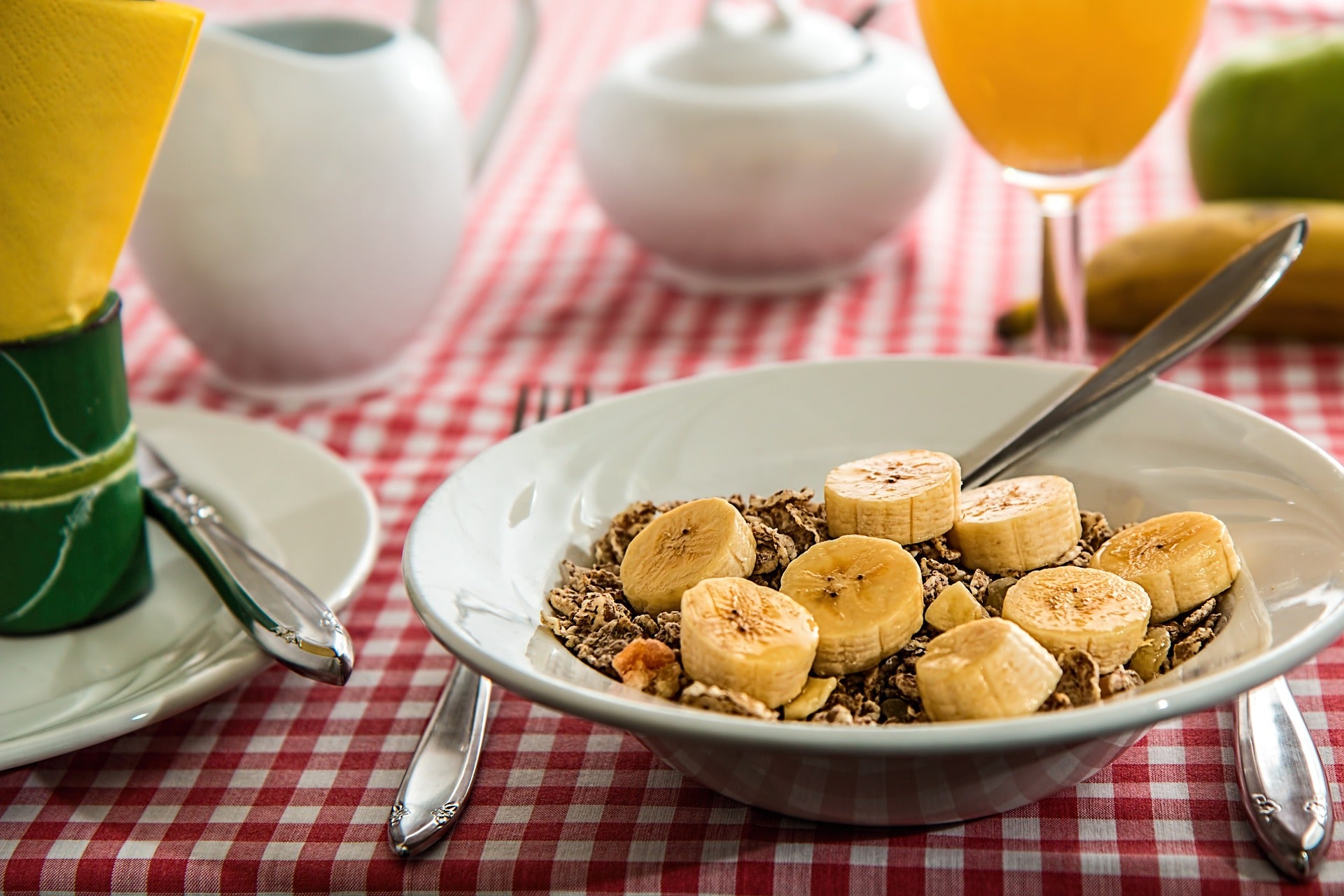
Sweet But Powerful - The 5 Best Fruits For Building Muscle
When it comes to muscle gain, protein gets all the glory. And almost all of it is deserving… almost. But fruits play an important role in muscle development, with no small thanks to their concentration of micronutrients, antioxidants, and beneficial carbohydrates. Let’s examine five recommended fruits for building muscle, why they made our Top 5 list, and unique, tasty ways you can incorporate them into your diet.
Why Fruits Are Vital For Fitness?
Fruits are often considered taboo in the world of bodybuilding, because of their fructose levels. While fructose has been linked to weight gain, this only appears to be the case when fructose is ingested from unnatural sources, like ultra-processed high-fructose corn syrup (HFCS) or in lab studies where it’s injected directly into the brain. [1]
But when ingested as real food, fruits—and the carbohydrates they contain—provide some key benefits to health and high performance, namely in regard to energy and nutrient content.
- Fruits contain complex carbohydrates which breakdown slowly for sustained energy
- In moderate amounts, fructose can be beneficial carbohydrate for your body to replenish depleted glycogen levels
- Glycogen stored in your muscles fuels your physical performance
- Fruits contain important micronutrients for optimum health and fitness
- Many fruits are rich (like, filthy rich) in antioxidants, which are generally very important for us
For A Fruitful Recovery, You Need More Than Rest
Separated from its natural source, fructose acts as a simple carbohydrate, which for the average American eating the average American diet (think MickyD’s and a Super Sized cola) is not healthy. But, ingested from real fruit, fructose can help restore energy levels during and after your exercise.
To put a complex process into simple terms, fructose only turns to fat when the liver’s glucose levels are full - the rest of the time it’s used to replenish glycogen levels for the liver. This means that if you limit other sugary foods, and if your sources of fructose are from high quality foods, the fructose you ingest is less likely to turn to fat. Essentially, fruit offers too many useful benefits and nutrients to justify avoiding it altogether.
It Takes More Than Just Protein To Build Muscle
Just because fruits aren’t the food group that comes to mind when you think about protein, doesn’t mean they aren’t useful for building muscle. In fact, protein is but one of the nutrients required for muscle development. The best fruits for muscle gain also contain micronutrients needed for recovery and muscle function.
The most important micronutrients for building muscles are:
- Iron
- Calcium
- Vitamin D
- Vitamin C
Next, we’ll dive into the best fruits for muscle gain and outline why athletes, nutritionists, and top-performers consider them the choice fruits for building muscle.
Which Are The Best Fruits For Muscle Building?
It’s not just bodybuilders with 20-inch biceps who are focused on muscle growth. Everyone needs muscles, and for many people of all fitness levels, getting the right and right amount of fruits can mean all the difference when it comes to developing healthy, strong muscles.
From micronutrient density to caloric volume, there are a few factors that determine the best fruits for muscle building. Here our top recommendations, with breakdowns for why they’re great and tasty ways to get them in your diet.
Bananas
Bananas are a controversial fruit for athletes. While they are one of the fruits highest in carbs and fructose, they are also rich in potassium, vitamin C, and magnesium—each of which is vital for bulking up and putting on muscle. Plus, bananas contain an enzyme known as bromelain that is known to boost testosterone. With the carbs to fuel your workout and the building blocks of muscle itself, bananas can actually be a great fruit to include in your muscle growth nutrition plan.
Breaking down a banana
Bananas vary in size, but will typically contain about 100 calories each. Within this 100 calories is an excellent supply of iron (an important nutrient for muscle function), copper, magnesium and numerous other vitamins. It’s also rich in fiber which aids weight loss and suppresses hunger and potassium which is directly involved in muscle growth. Testosterone is crucial for bulking up as well, and bananas aid this with the enzyme bromelain which helps increase levels of this powerful hormone.
Try this Vegan Banana Recipe: Frozen Vegan Banana Bites
Strawberries
Strawberries are in the highest tier of fruits for building muscle because they’re so dense in iron and vitamin C. Iron is crucial for muscle development, and a lack of iron in your diet can comprise your training and athletic performance. Vitamin C is a precursor to collagen, the “building block” protein responsible for building and repairing ligaments, scar tissue, skin, and—you guessed it—muscle. Typically, collagen comes from animal sources, which makes strawberries an extra-important fruit for vegans looking to put on strong, lean muscle.
Our favorite source of strawberries?
C’mon, it’s hard to go wrong with real strawberries almost any way you want to eat them. You don’t need us to tell you that. Just be sure to avoid artificial strawberry flavors or highly processed strawberry products.
You’ll also notice that organic strawberries are one in the first five ingredients of our Strawberry Cheesecake Refrigerated Protein Bars – an excellent low-carb vegan protein bar that’s perfect for pre or post exercise.

And if you just want a sweet treat that won’t bump you off your workout diet, dip fresh strawberries into our sugar-free vegan hazelnut spread.
Avocado
Avocado is everywhere these days. In fact, it’s hard to find a brunch spot without avocado toast at the top of the menu. And we’re not complaining! Nor are fitness buffs. Primarily used in Mexican cuisine and on salads, avocados are considered a genuine superfood for a variety of reasons. A recent study published in Nutrition Journal found that people who regularly eat avocados typically have healthier body weights and commit to higher quality diets than those who don’t. If you’re slimming down and putting on muscle, make the avocado a regular part of your vegan diet.
A closer look at avocados
The avocado is one of the highest calorie and fatty fruits, although it’s important to note that these are good fats — the monounsaturated type. It’s rare for a fruit to have high levels of fat, so the fact that avocados are rich in monounsaturated fatty acids is remarkable. Avocados also have an extremely rich fiber content, with around 4.5 grams per half. A half an avocado typically contains 109 calories and is rich in many vitamins, including B6, B9, E, and K.
Pro tip: avocados aren’t just for toast and guac. Add up to a quarter cup of avo to your protein smoothie to give it a deliciously creamy texture.
Dates
Dates are underestimated in American cuisine, and are often relegated to premium smoothies and fancy trail mixes. However, fresh dates are super nutrient dense and should not be ignored by those wanting to step up their fitness level.
Known best for their high fiber content and for being one of the few fruits that is a source of protein, dates are an obvious choice for muscle building fruits. Dates also benefit our vision and allergies, as well as bone health and nervous systems.
Save the date!
A 100 gram serving of dates contains about 277 calories and 80 carbohydrates, making them a valuable carb-source for vegans. About 2% of every 100-gram serving is protein, and almost 7g of that is dietary fiber. Dates have their own unique properties too, including being rich in antioxidants and anti-inflammatories.
Dates can be consumed in a number of different ways. If you get your workout in in the morning, try slicing up a few dates to put into your post-exercise oatmeal or low-carb cinnamon granola for a seasonally flavored boost.
Monk Fruit
This otherwise unsuspecting member of the gourd family isn’t likely to steal your attention in the produce aisle—in fact, it’s not likely to even be found in most produce aisles—but it’s fast on its way to becoming one of the most sought after natural sweeteners on the market.
That’s because monk fruit has zero calories, zero carbs, and zero known side effects. This includes bloating, gas, allergic reactions, or questionable long-term and carcinogenic effects of artificial sweeteners like Splenda and Equal.
The sweet and simple on monk fruit
Monk fruit is one of the best fruits for muscle gain because it’s a relatively stable sweetener with relatively awesome dietary properties. This means you get a hit of good nutrients without the rapid spike in glucose. Specifically, monk fruit helps promote weight loss and is a great anti-inflammatory.
Weight loss isn’t always a clashing contradiction to muscle gain. If you’re looking to build muscle while toning down and trimming fat, a sweetening ingredient such as monk fruit is exactly what you should be looking for.
Almost all of Bhu Food’s products use organic monk fruit extract as an ingredient. This is because it aligns with our organic, clean, low-carb ethos. (Even though we recognize the important role carbohydrates play in terms of energy and recovery, our products remain free of added and excessive sugars, which are scientifically recognized and unhealthy.) It also allows us to make high-protein vegan snacks that align with most people’s workout, weight loss, and muscle building routines.
Conclusion
Fruits are unique in their shape, color, and taste, but most importantly, they often have vastly different nutritional properties. When optimizing your diet to include fruits for muscle building, don’t ignore your own dietary and health requirements. Because what works for one person may not work for you. And if you’re keen to chow on some healthy, nutrient-dense snacks on-the-go, take a look at Bhu Products, and reach out to us if you have any questions about our ingredients.



